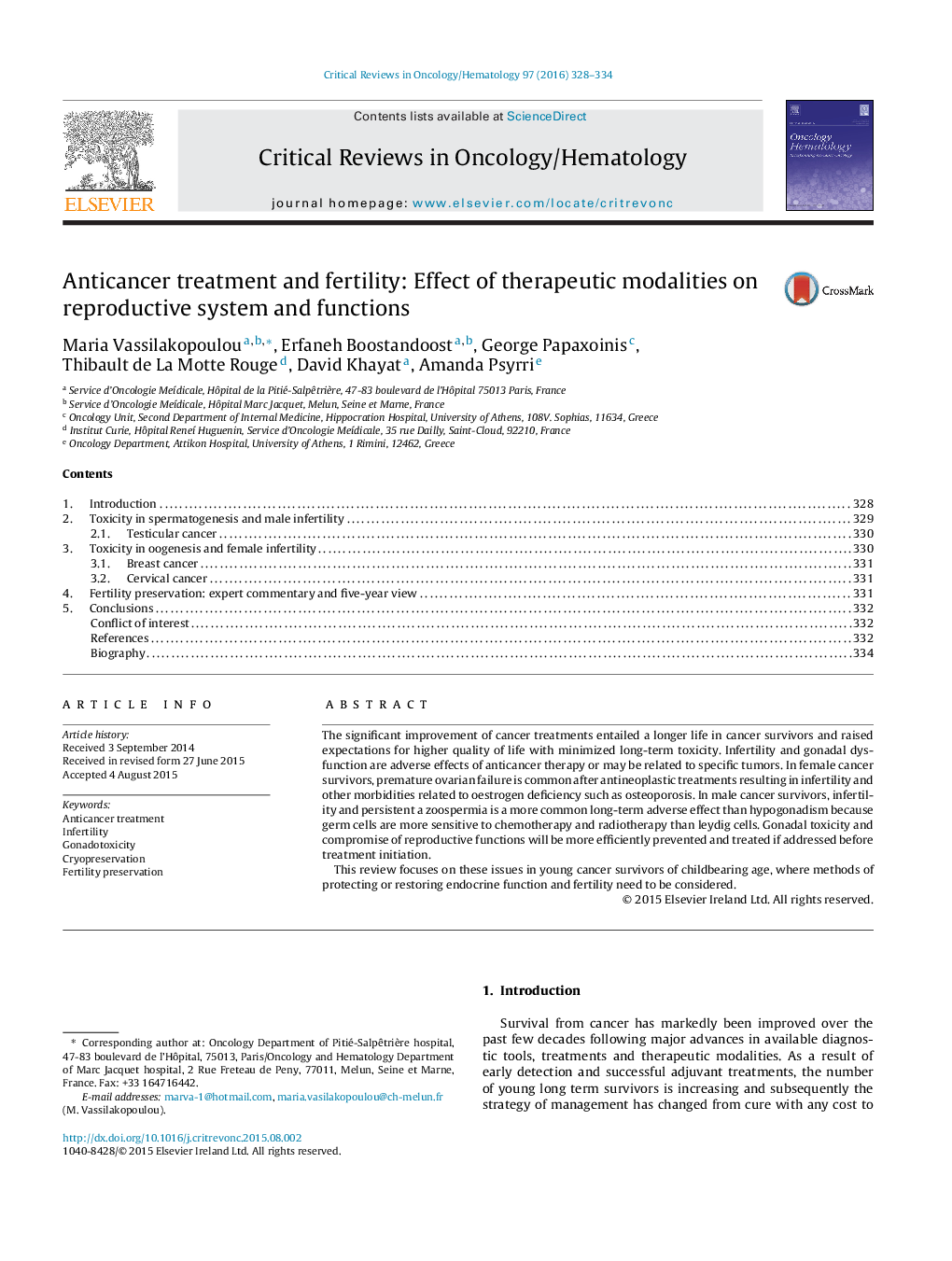| کد مقاله | کد نشریه | سال انتشار | مقاله انگلیسی | نسخه تمام متن |
|---|---|---|---|---|
| 3328575 | 1590720 | 2016 | 7 صفحه PDF | دانلود رایگان |
• Chemotherapy and radiotherapy have direct toxic effects on spermatogonia. This effect is dose-related and drug-specific.
• In male cancer survivors, infertility and persistent a zoospermiais a more common long-term adverse effect than hypogonadism because germ cells are more sensitive to chemotherapy and radiotherapy than leydig cells.
• Testicular cancer is often associated with infertility not related to cytotoxic treatment.
• The mechanisms of cytotoxic agent and radiation treatment gonadal toxicity in women include the impairment of follicular maturation by arresting rapidly dividing cells or direct toxicity on quiescent primordial follicles or the combination of two.
• The extent of damage depends on the type of the drug, cumulative doses, age and pre-treatment gonadal status of the patients.
• Gonadal toxicity and compromise of reproductive function are more efficiently prevented and treated if addressed before treatment initiation.
• The most effective and established means of preserving fertility in young survivors from cancer are oocyte and embryo cryopreservation in women and sperm cryopreservation in men before the initiation of therapy.
• Alternative and promising methods include cryopreservation of unfertilized oocytes, ovarian tissue laparoscopic excision with subsequent grafting and freezing before treatment and harvesting of immature oocytes and in vitro maturation.
• The role gonadotropin analogues (GnRH) administered during the course of chemotherapy in the preservation of female fertility should be reconsidered.
The significant improvement of cancer treatments entailed a longer life in cancer survivors and raised expectations for higher quality of life with minimized long-term toxicity. Infertility and gonadal dysfunction are adverse effects of anticancer therapy or may be related to specific tumors. In female cancer survivors, premature ovarian failure is common after antineoplastic treatments resulting in infertility and other morbidities related to oestrogen deficiency such as osteoporosis. In male cancer survivors, infertility and persistent a zoospermia is a more common long-term adverse effect than hypogonadism because germ cells are more sensitive to chemotherapy and radiotherapy than leydig cells. Gonadal toxicity and compromise of reproductive functions will be more efficiently prevented and treated if addressed before treatment initiation.This review focuses on these issues in young cancer survivors of childbearing age, where methods of protecting or restoring endocrine function and fertility need to be considered.
Journal: Critical Reviews in Oncology/Hematology - Volume 97, January 2016, Pages 328–334
